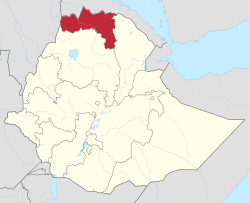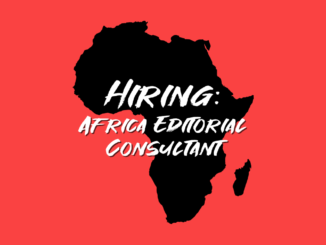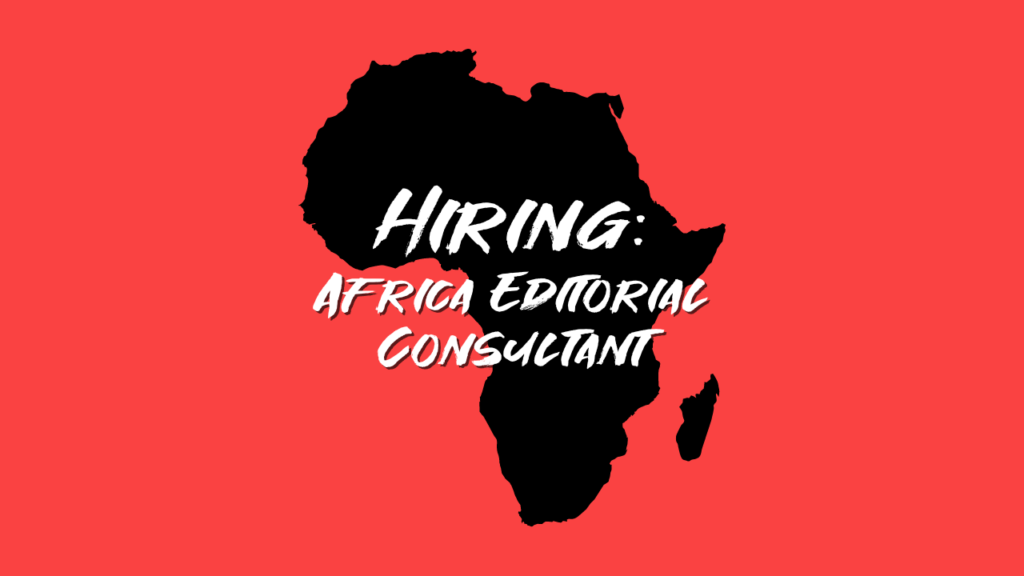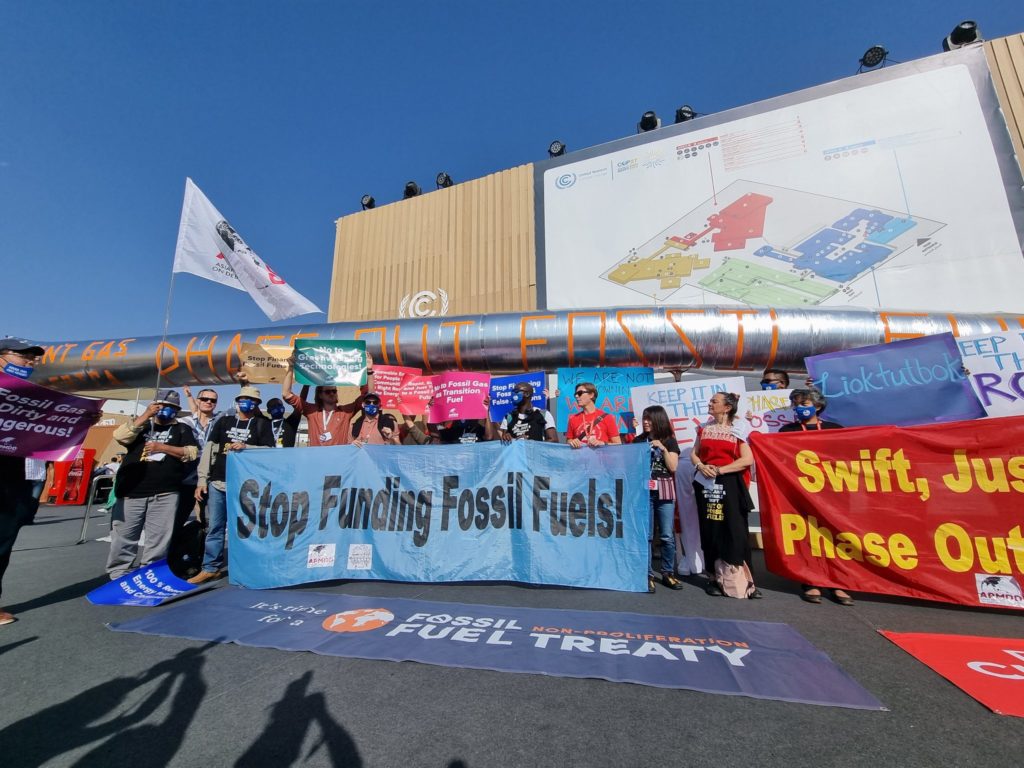The outbreak of war in Sudan dominated headlines in April, but plenty more has happened in Africa, including in Comoros, Ethiopia, Kenya, Chad, Uganda, Morocco, Cameroon, West Africa, Tanzania and Algeria. African Stream reports.
Related Articles
Related Articles

U.S.-Backed TPLF Breaks 5-Month Truce By Resuming War in Northern Ethiopia

Editor’s Note: This article was originally published by People’s Dispatch.
Young people from Ethiopia’s northernmost State of Tigray, conscripted under threat by the Tigray People’s Liberation Front (TPLF), continue the attack on the Raya Kobo district of the neighboring Amhara State, six days after TPLF resumed the civil war.
In a bid to avoid mass-civilian casualties in urban fighting, the federal troops have withdrawn from Kobo city and taken defensive positions on its outskirts, the Government Communication Service said on Saturday, August 27. While leaving the door open for negotiations under the African Union (AU), the Ethiopian federal government has however stated that it will be “forced to fulfill its legal, moral and historical duty,” if the TPLF does not stop.
The five-month long humanitarian truce in the civil war, which the TPLF started in November 2020 by attacking a federal army base in Tigray’s capital Mekele, effectively collapsed on August 24 after the TPLF launched this attack on Raya Kobo.

A2—a critical highway between Ethiopian capital Addis Ababa and Mekele—passes through this strategic Amharan district in the northeast of North Wollo Zone, sitting on the border with Tigray to the north and Afar to the east.
Civilians in Amhara and Afar have already suffered mass-killings, rapes, hunger and disease with the looting and destruction of food warehouses and medical facilities, when the TPLF had invaded from Tigray mid-last year.
The southward invasion of the TPLF last year had begun soon after the government declared a unilateral ceasefire and withdrew the federal troops from Tigray on June 29, 2021, to prevent disruption of the agricultural season with fighting. Food insecurity in the region had already reached emergency levels.
Stealing hundreds of UN World Food Program (WFP) trucks that were carrying food aid to Tigray over the following months, the TPLF, using conscripted forces, made rapid advances into Amhara and Afar. By August that year, Raya Kobo had fallen to TPLF. In and around Kobo city alone, the TPLF is reported to have killed over 600 civilians in September.
Advancing further south along the A2, the TPLF had captured several other Amharan cities and reached within 200 kilometers of capital Addis Ababa by the year’s end. To the east, in Afar, the TPLF had pushed south all the way to Chifra, only 50 kilometer (31 miles) from Mille district where it intended to seize the critical highway connecting land-locked Ethiopia’s capital to the port in neighboring Djibouti. However, the use of human waves to attack, which had enabled its rapid advance, had also depleted its forces, having taken heavy casualties by then.
The reversal began in December, when the combined forces of federal troops and regional militias from Afar and Amhara pushed back the TPLF. The TPLF had by then stretched far south from its base in Tigray. All along the way, it had turned the civilian population against itself by its mass-killings, looting and rapes. By the start of this year, the TPLF had been pushed back into Tigray, and encircled there.
However, Prime Minister Abiy Ahmed’s government, under enormous international pressure, ordered the troops to stand guard at Tigray’s border and not enter the state. In March 2022, the government unilaterally declared a humanitarian truce to allow for peaceful flow of much needed aid into Tigray. The TPLF reciprocated. Despite occasional clashes, the truce largely held out on the ground for the last five months. During this period, the African Union (AU) High-Representative for the Horn of Africa, former Nigerian President Olusegun Obasanjo, shuffled back and forth between Addis Ababa and Mekele in preparations for peace negotiations.
Then, on August 2, the U.S. special envoy to the Horn of Africa Mike Hammer, U.S. Chargé d’Affaires in Ethiopia Tracey Jacobson and the European Union (EU) envoy Annette Weber, along with other Western diplomats, paid a visit to Mekelle and met TPLF leaders. Soon after this visit, which was criticized by the Ethiopian government, the TPLF began mobilization for war.
‘A Proxy of the U.S. and the EU’
Two days before it resumed the war by launching the attack on Raya Kobo on August 24, the TPLF had dismissed AU’s credibility and essentially called for Western intervention in an article published in the African Report on August 22. Originally published under the by-line of TPLF chairman Debretsion Gebremichael and then changed to spokesperson Getachew Reda, this article first condemned the AU for claiming “that there is hope for an imminent diplomatic breakthrough with respect to peace talks.”
After further condemning it for welcoming “the Abiy regime’s embrace of an AU-led peace process” and for calling on “the ‘TPLF’ to do the same,” the article went on to say that “the Abiy regime has made it clear that it is willing to partake only in an AU-led peace initiative… Abiy regime recoils at the possibility of the democratic West taking direct or indirect part in the mediation process.”
Criticizing the federal government’s “persistent blockage” of the U.S. and EU envoys’ visit to Tigray “until recently,” the article argued that it “reflects [the Ethiopian government’s] fear of being compelled to give peace a chance.” By not allowing the U.S. and its allies to mediate the peace process, the “Abiy regime has taken no practical steps to demonstrate a sincere commitment to peace,” it argued.
“Despite the AU Commission’s… ineffectiveness in moving the peace process forward, the rest of the international community remains reluctant to intervene on account of a well-intentioned but misplaced commitment to the idea of “African solutions for African problems,” TPLF said.
The Ethiopian government “has exploited this understandable sensitivity… by disingenuously dismissing non-African proposals for peace as a form of “neocolonialism,” the article argued. It also cautioned “the international community” against what it deemed as “Pan-African subterfuge.”
By calling for the West’s intervention, the TPLF has “finally declared the truth about itself—that it is a protégé of external forces, mainly the U.S. and the EU,” former Ethiopian diplomat and historian Mohamed Hassan told Peoples Dispatch.
With the backing of the United States, the TPLF had ruled Ethiopia as an authoritarian state for nearly three decades from 1991, when all political parties outside the ruling coalition led by itself were banned. There was no space for free press. Ethiopia during this period was disintegrated into a loose federation of ethnically organized regional states, each with militias of their own.
In 2018, mass pro-democracy protests forced the TPLF out of power at the center and reduced it to a regional force, in power in Tigray alone. Abiy Ahmed came to the fore at this time as a progressive prime minister with a vision of inclusive Ethiopian nationalism that transcends ethnic divisions.
Apart from opening up the political space within the country and allowing free-press, Ahmed’s reforms also extended to foreign policy. Signing a peace deal with Eritrea soon after becoming the prime minister, he ended the decades-long conflict with the northern neighbor the TPLF had declared, and continues to regard, as an enemy nation. Ahmed won the Nobel Peace Prize for this deal.
He also followed it up with a Tripartite Agreement in which Ethiopia, Eritrea and Somalia declared that the conflict between the three states had been resolved and their relations had entered a new phase based on cooperation.
Such a “resolution of the antagonism between African states and people is not appreciated by the United States and the European Union. They find this is a very bad example because, in the long term, it might weaken and eventually collapse Africa’s NATO, namely the U.S. Africa Command (AFRICOM),” Hassan argued in an interview with Peoples Dispatch in November last year.
At the time of these developments, the Donald Trump government in the United States, in an aberration from the norm, was disengaging from Africa, and hence ignored these threats to its imperialistic interests. However, with the Biden administration, the old foreign policy establishment returned. While waiting to take the White House after winning the election, Biden’s incoming establishment instigated the TPLF to start this war in November 2020, Hassan accused.
All diplomatic maneuvers of the Biden administration have since aimed at depicting the Ethiopian federal government, which is fighting a defensive war, as the aggressor. The United States has also announced several sanctions against Ethiopia.
Tigrayan Youth Increasingly Unwilling to Fight the TPLF’s War On Ethiopia
Despite external support, the TPLF is increasingly losing authority in Tigray itself, Hassan claims. “There are protests against TPLF everywhere in Tigray—especially in the northern parts. There are now political parties in Tigray that are opposing TPLF’s hegemony,” he said.
In a speech addressing the residents of Mekele in mid-August, barely two weeks after the visit by Western envoys, TPLF chairman Debretsion Gebremichael reflected neither political nor military confidence when he threatened: “Tigray will only be for those who are armed and fighting. Those who are capable of fighting but do not want to fight will not have a place in Tigray. In the future, they will lack something. They will not have equal rights as those who joined the fighting. We are working on regulation.”
Such a threat, coming when the practice of conscription including of child soldiers has already been in place, reflects an increasing refusal of the Tigrayan youth to fight the TPLF’s war.
After interviewing 15,000 surrendered and captured Tigrayan fighters at a camp in Chifra, Afar, in March and April this year, Ann Fitz-Gerald, the director of the Balsillie School of International Affairs, wrote in her research paper:
“The only alternatives to recruitment.. were to be fined, ‘see bad come to their family,’ and have their family members, no matter what age, be imprisoned. One female fighter justified her decision to put herself forward based on her desire to protect her brother, who required medical treatment; another respondent who had young children described how the special forces waited for him at his workplace the next day after having expressed his preference not to join the force due to his young children and his ill wife. When he tried to run from the paramilitary members, he was shot at and had no option but to hand himself over and join the force.”
The surrendered fighters reported receiving medical attention and decent treatment after putting down their arms and “confirmed that the [Ethiopian National Defense Force] ENDF soldiers who staff the Awash Basin center eat the same food as the captured/surrendered fighters and in the same dining area.”
The TPLF, on the other hand, had “instructed [them] to take their own lives before capture.” Not having done so, these surrendered and captured forces are unable to return to Tigray where their lives are at risk. With another round of recruitment underway during the truce period this year, thousands of Tigrayan civilians have been fleeing the state over the last months to escape conscription. Hundreds caught in the attempt have been detained and arrested by the TPLF.
Nevertheless, the TPLF managed to force considerable conscriptions, as evident in the waves of youth attacking Raya Kobo. Kobo’s main police station was the center where most of the TPLF fighters interviewed by Fitz-Gerald had surrendered after its attack last year was beaten back.
“The TPLF is not a rational organization. They are using human waves as cannon fodder, sending tens of thousands of Tigrayan youth to death with nothing to be gained. They have no regard for the right to life of the people in Tigray,” Hassan said.
TPLF Depriving Tigrayans of Food
As much as 83 percent of the population in Tigray is food insecure, according to a report by the WFP in January this year. Over 60 percent of pregnant or lactating women in the state are malnourished and most people are dependent on food aid for survival.
Under these grave circumstances, soon after the TPLF resumed war on August 24, “World Food Program warehouse in Mekelle, capital of the Tigray region, was forcibly entered by Tigray forces, who took 12 full fuel trucks and tankers with 570,000 liters of fuel,” said Stephane Dujarric, chief spokesperson for UN Secretary-General Antonio Guterres.
“Millions will starve if we do not have fuel to deliver food. This is OUTRAGEOUS and DISGRACEFUL. We demand return of this fuel NOW,” tweeted WFP’s Executive Director David Beasley.
“These storages of food stuff and fuel are supposed to be used to help humanitarian assistance for the peaceful population of Tigray, which is suffering from different man-made and natural calamities,” said Russian Ambassador to Ethiopia Evgeny Terekhin on August 25.
“I cannot imagine anybody in his senses in the international community supporting such deeds… Of course, I understand that certain sides will try to refrain from condemning, but… everybody will understand… what is happening,” he added.
“The U.S. joins the UN in expressing concern about 12 fuel trucks that have been seized by the TPLF,” the U.S. State Department’s Bureau of African Affairs said in a tweet. “The fuel is intended for the delivery of essential life-saving humanitarian assistance & we condemn any actions that deprive humanitarian assistance from reaching Ethiopians in need.”

Toward Freedom Seeks an Africa Editorial Consultant

UPDATE: The application deadline has passed.
Toward Freedom, an independent U.S.-based publication, seeks to hire an Africa Editorial Consultant with experience in journalism to help develop a remote Africa Bureau. Check out the requirements and deadline.

COP 27: Weighty Presence of Fossil Fuel Lobbyists Raises Alarm

Editor’s Note: This article originally appeared in Peoples Dispatch.
At the COP 27 climate summit, an explosion of fossil fuel lobbyists was observed with over 600 such delegates present at the venue in Sharm el Sheikh, Egypt. With this number of registered delegates, this year’s COP has seen a rise of 25 percent among fossil fuel lobbyists compared to last year.
Notably, the fossil fuel lobbyists outnumbered any single community that has been at the frontline of populations affected by the climate crisis.
Three organizations, namely, Corporate Accountability, Corporate Europe Observatory, and Global Witness (GW), have analyzed the provisional list of attendees to the UN event. The finding reveals the scale at which the corporate actors directly linked to fossil fuel burning enjoy access to the critical climate summit of COP 27. Notably, the lobbyists are affiliated with some of the world’s largest polluting oil and gas companies.
There were 503 such lobbyists at the Glasgow summit of last year, and then also, this figure outnumbered the delegation from any single country. This year in Egypt, the only country that outnumbers the number of lobbyists, who are linked with the largest polluting corporates, is the United Arab Emirates (UAE) with 1,070 registered delegates. The UAE will host COP 28 next year.
An activist group named ‘Kick Big Polluters Out’ said in a statement, “The influence of fossil fuel lobbyists is greater than frontline countries and communities. Delegations from African countries and Indigenous communities are dwarfed by representatives of corporate interests directly at odds with the level of systemic change needed to slow the climate crisis.” They added that fossil fuel lobbyists were working openly through several country delegations.
Researchers belonging to Global Witness, Corporate Europe Observatory, and Corporate Accountability counted the number of registered individuals who are directly affiliated with fossil fuel giants like Shell, Chevron and BP (British Petroleum) or representing the fossil fuel industry as members of delegations that act on behalf of these industries. Some of the salient points that the analysis found are the following:
As many as 636 fossil fuel lobbyists are registered at COP 27; there are more fossil fuel lobbyists registered than delegations from Africa, and this is despite it being the ‘African COP’ this year; 29 countries have fossil fuel lobbyists within their national delegates; last but most important is that there are more lobbyists than representatives of the 10 countries that are most impacted by climate change, including Myanmar, Haiti, Pakistan, and Bangladesh.
The researchers also mentioned that activists from the Global South (developing countries) along with Indigenous communities that are in the most vulnerable conditions due to climate crisis have been kept at bay from attending the summit by high costs, challenges in getting visas and repressive actions implemented by the hosting country.
Civil society groups have raised apprehensions that with the increasing presence of fossil fuel lobbyists, the negotiations may get stymied, that too at a crucial time when the efforts of keeping the global temperature within 1.5 degrees Celsius should take center stage.
It’s worth mentioning that many environmental groups that work on the transition away from fossil fuel argue that including private players in the negotiations could be beneficial. However, the sheer size of the lobbyists at the negotiations can outweigh the benefits of their inclusion. Thus, the fear that their presence can actually slow the negotiations rather than limit their industries.
“The explosion in the number of industry delegates attending the negotiations reinforces the conviction of the climate justice community that the industry views the COP as a carnival of sorts, and not a space to address the ongoing and imminent climate crisis,” commented Kwami Kpondzo of Friends of the Earth Togo, the non-profit organization working to protect the environment and sustainable development.
In addition, a coalition of civil society groups recently made a submission to the UNFCCC (United Nations Framework Convention on Climate Change), the wing that supervises COP summits, saying, “ Climate action would continue to fail to meaningfully address the climate crisis as long as polluting interests are granted unmitigated access to policymaking processes and are allowed to unduly influence and weaken the critical work of the UNFCCC.”
